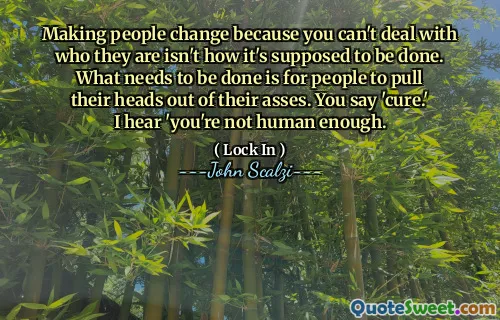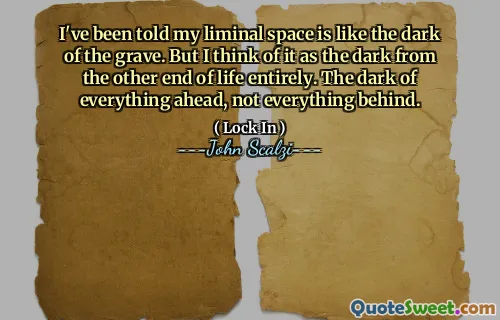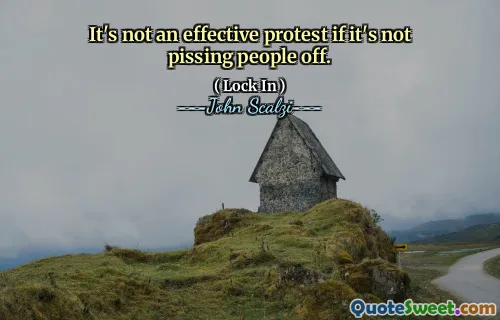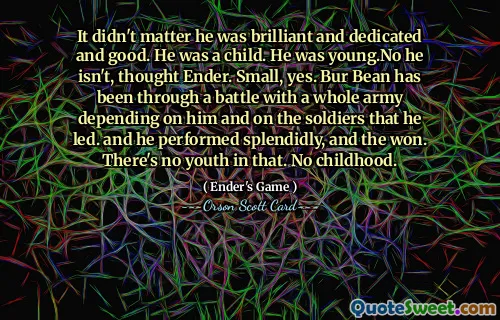
When you're a kid all you want to do is be somewhere else.
In John Scalzi's book "Lock In," the protagonist navigates a world affected by a pandemic that causes a significant percentage of the population to be locked in their bodies. This condition leads to a unique societal situation where technology allows individuals to transfer their consciousness into robotic bodies, exploring themes of identity and connection. The narrative intertwines mystery and technology, providing a gripping commentary on human experience.
The quote, "When you're a kid all you want to do is be somewhere else," captures a common youthful longing for adventure and escape. It reflects the desire to break free from the confines of one's environment, much like the characters in "Lock In" seek freedom from their physical limitations. This sentiment resonates with readers, highlighting the universal struggle between yearning for change and confronting reality.









